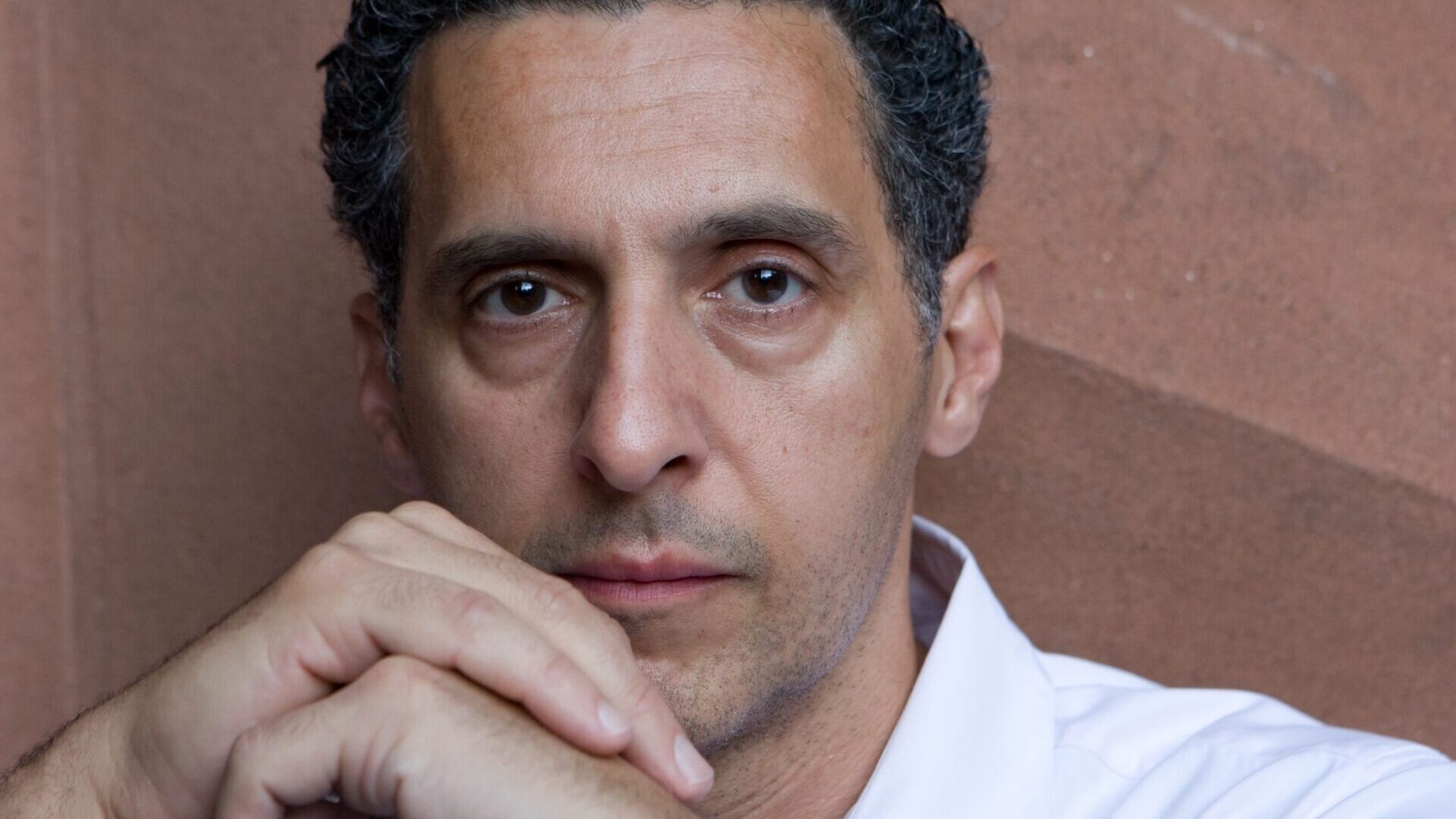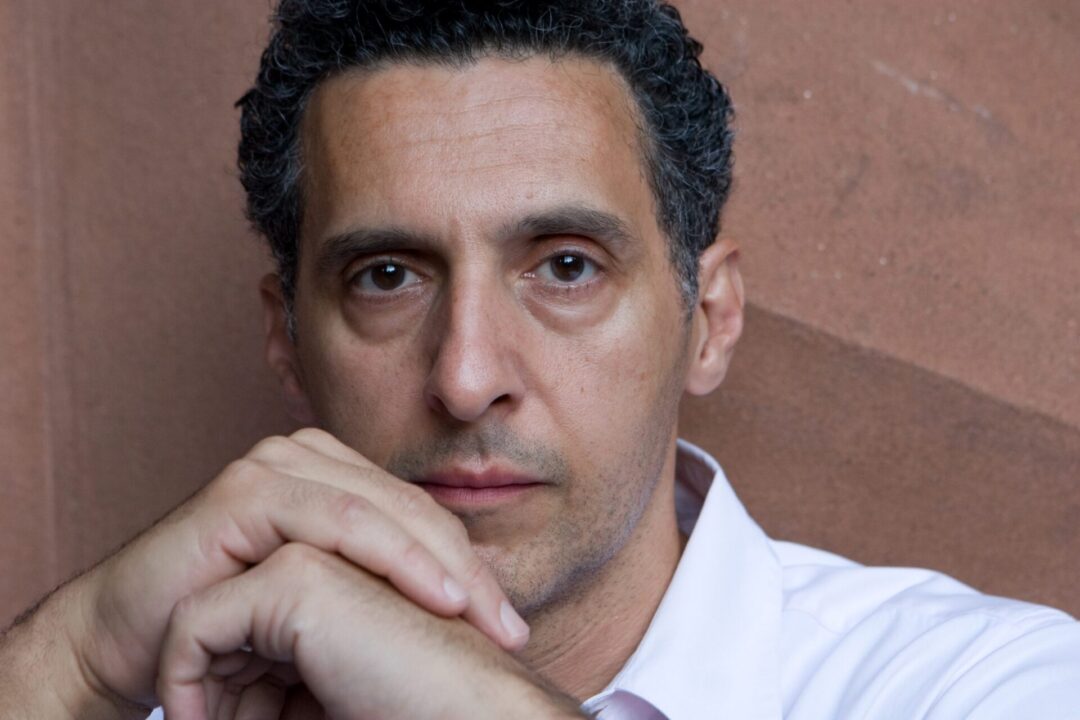Perhaps better known for his more accomplished performances in celebrated American indies (Barton Fink, The Big Lebowski), John Turturro has also made a career out of stepping behind the camera to direct. In this writer/director effort, Fading Gigolo, Turturro teams up with Woody Allen, whose acting in another director’s works marks a rare event, as the pair team up here as a paid lover and his bumbly and neurotic “manager.” Though if creepy thoughts start to rise in your mind at this point, I would assure you, this adult romantic comedy sidesteps any uncomfortable and awkward comedy, creating instead an intimate and heartfelt look about companionship, loneliness, and love, in the second half of our lives. Turturro, shaking everyone’s hands at a roundtable interview before we started, effortlessly displayed class and charm, as
WHAT’S FASCINATING ABOUT THIS MOVIE IS THAT, IN BLACK AND WHITE, IT’S ABOUT PROSTITUTION. BUT YOU PORTRAY IT IN AN ENTIRELY DIFFERENT LIGHT, AND ACTUALLY FEELS LIKE YOUR CHARACTER, FIORAVANTE, IS REALLY HELPING THESE PEOPLE?
I mean, I kind of used the prostitution angle, and even the religious angle as a metaphor, because, why do people do those things? Why have people paid for sex for such a long time?, you know, it’s been one of the oldest “jobs,” in a way. A lot of actresses in the theater, in like the 1700’s, 1800’s- first of all, they weren’t actresses, they were courtesans. Sarah Bernhardt was a courtesan. As a matter of fact, the intermissions were so long in the theater because sometimes people would see someone on stage, and then they’d have like, an encounter during the intermission. So, actors were not allowed to be buried, because they were considered the same thing, cause they were performers.
So I’ve always been interested in it, there’s always been some fascinating films over the years, foreign films, American films, iconic performances from like Barbara Stanwyck, to Joan Crawford, to Elizabeth Taylor, to Nights of Cabiria, which is one of my favorite movies, something that interests me. I like Midnight Cowboy, obviously. So when I met with Woody, Woody and I were talking, and he and I thought we could be good together and I thought, “Wow, if we were in the sex business, that would be really interesting.”
[Laughter]
And Woody was like, “Yeah, this could be perfect for us.” I thought, “maybe we’d be good together, maybe we were getting into the business or getting out of it because of circumstances, but maybe it would be an unlikely pair. And then I started thinking about you know, if the guy, I have friends who are around my age, or younger or older, they still live by themselves, and they’re alone. They’re like a samurai type of existence, and I thought, well that would be interesting, especially if it’s a guy who’s very comfortable with women, who likes women. Cause there are lots of men who are even married, or whatever, but they don’t really like women. They’re not very comfortable working with them, or socializing with them. They’re more of a guy’s guy. And I thought, that’s something, I’m comfortable with that situation, maybe because of my relationship with mother or with my wife, or the woman whose costume designs are in the film, we shared a workspace for years, you know we’re really close friends, I have a lot of women close friends. And I thought well that could be interesting. And I also liked the idea of a guy who was a physical person, who could do things physically, you know, take something apart, take an engine apart, make a meal, work in a flower store, and he wasn’t a salesman. So he was an unambitious person, which you don’t see a lot of times in a movie. But very competent person, but lonely. And then, interacting with all of these women who are lonely for different reasons. And I thought, well that could be interesting.
And also the idea of beauty, of what people associate with being beautiful versus being sexy. And sexuality comes in all sizes and shapes, and hairdos and colors and whatever it is, but I thought, that’s interesting, because sometimes you meet someone and they’re not really at all beautiful, but they’re very attractive, in some way. And I thought wow, that’s interesting to explore if we light it right, and control the palette, an we make it palpable, like a rich painting is, or a rich photograph. And then you can feel, you can enter into this photograph, or this novella…I used a lot of Saul Leiter photographs, he was a fashion photographer, but he took these street photographs in the thirties and forties, interestingly enough he came from a Hasidic family, or an Orthodox family, but he processed it in this special dye-transfer, they’re beautiful photographs of people’s reflections in mirrors, anonymous people. That and I took the Italian still-life painter Mirandi, who does all these beautiful still lives, and I used that as kind of a color scheme and I thought, you want to go into this special world, like all the stripes, with the Hasidic community, which is true, it’s echoed in Fioravante’s character. So I tried to use things from real life, I did a lot of research with the streetwalking aspect, and also with the Hasidic, because I thought I needed one religion, either Muslim, or Catholic, usually its always about a nun.
Woody and I were talking, and he and I thought we could be good together and I thought, “Wow, if we were in the sex business, that would be really interesting.”
But the whole idea of head covering, I really find fascinating. And I think when someone’s head is covered, you know, there’s this whole fear that if the woman’s head is uncovered, she’s going to run rampant, and it pervades through a lot of this world, today. And even in cultures that don’t have that as much, maybe it’s a different kind of culture, but there’s a fear, that a woman being too free, or something. So I thought, wow, that would be really strong, if she’s kind of a metaphor, for that. And in the course of that crazy idea, these two people meet and something occurs between them that is really big. Because, whatever age she (Avigal) is, she has six kids, but its like she’s still eighteen years old, she’s never been courted, she’s never been looked at, she’s never kind of opened up and said, “This is who I am,” and someone saying “Wow, you’re a fantastic person,” she just was given. And it’s a big part of life. And even Sharon’s (Stone) character, she’s kind of imprisoned in her rich world, but in a different way. Sofia’s (Vergara) not, but you want to have a balance. So these are things that interested me, I’m interested in relationships, but the idea of how everyone can be lonely, even in you’re in a relationship, sometimes people go outside of it for adventure or something else, and how that’s an unceasing need throughout life, whatever age you are, you’re this age now, but you could be seventy years from now, you could’ve lost someone, or whatever and you have to reinvent yourself, and you’re still looking for someone to connect with, or to be in the dark with. That idea of two feet in the dark, that never stops. That’s part of our life, you know, besides warmth and safety and food, it’s a big part of our lives. And so I wanted to put this into an entertaining movie. And Woody encouraged me to really delve deeper, cause originally my idea was very broad and crazy- I had a lot of great ideas, but they weren’t working in conjunction with one another.
WHAT WAS THE ORIGINAL IDEA FOR THE FILM?
Well the original idea was more like they were trying to get out, it was a little broader and more bawdy, and stuff like that. But one of the first original ideas, which I loved, that I held onto for a long time, was, and which I regretted never being able, but I just didn’t have room for it, was, I had a character, because I knew Elaine Stritch, I worked on a play with her and I also directed her in Romance & Cigarettes, and she went to Catholic school. And I knew I wanted religion, cause I like anything about religion, because you can’t have sex without religion…
[Laughter]
HOW MUCH OF YOURSELF IS IN YOUR CHARACTER?
Well you always use aspects of yourself, but there were aspects of other people that I drew on. And that’s it, that’s what you’re doing in lots of characters when you’re doing it. But certainly, feeling comfortable with women, I’m not an isolated person, and I’m not probably good as physically as he is, I’m good at certain things. But like I worked in that flower shop for like a week with all the ladies, and it was wonderful. It was like kind of heaven for me. I mean it was hard work, but I was learning how to make beautiful arrangements, re-pot orchids…so I’ve always liked when I’ve had female directors or female coaches, I’ve always felt more comfortable with that. Not that there isn’t some people I haven’t gotten along with. But that’s the trick of it, you have to make something personal and also imaginative. I used to make up notebooks, like what I had in common with the character and what I didn’t, and what I needed to work on. But there’s a lot of me in the film across the board, not just in that person.
HOW DID YOU WORK WITH WOODY ALLEN ON THIS? I UNDERSTAND THAT IN THE DEVELOPMENT STAGES HE WOULD GIVE YOU NOTES…
He gave me brutal notes about things that he didn’t think were believable, and then I would think about it, and he’d say, “I like this part, think about this, think about that,” and I kept coming back. He said I could withstand his brutality, his brutal criticism. But he liked me enough, and I liked him enough to think about what he said. Someone else I would’ve said, “Forget it, I’m gonna go somewhere else.” But I thought, this is an interesting situation, and in life, you always, once again, the idea of reinventing myself, you’re always learning. You know, I’m still learning too. So maybe I could learn something from him. And I think he really admired that, and that’s why he asked me to direct these plays in the middle of it, and then once we really got to know each other, you now, he’s alive. So if you’re too afraid, you can be respectful, but if you’re too afraid, you can’t really do anything. And he always liked the way I had written his character, that he always liked, but his voice is in my head. I have enough material that I could easily do a sequel.
Ryan Rojas
Ryan is the editorial manager of Cinemacy, which he co-runs with his older sister, Morgan. Ryan is a member of the Hollywood Critics Association. Ryan's favorite films include 2001: A Space Odyssey, The Social Network, and The Master.


